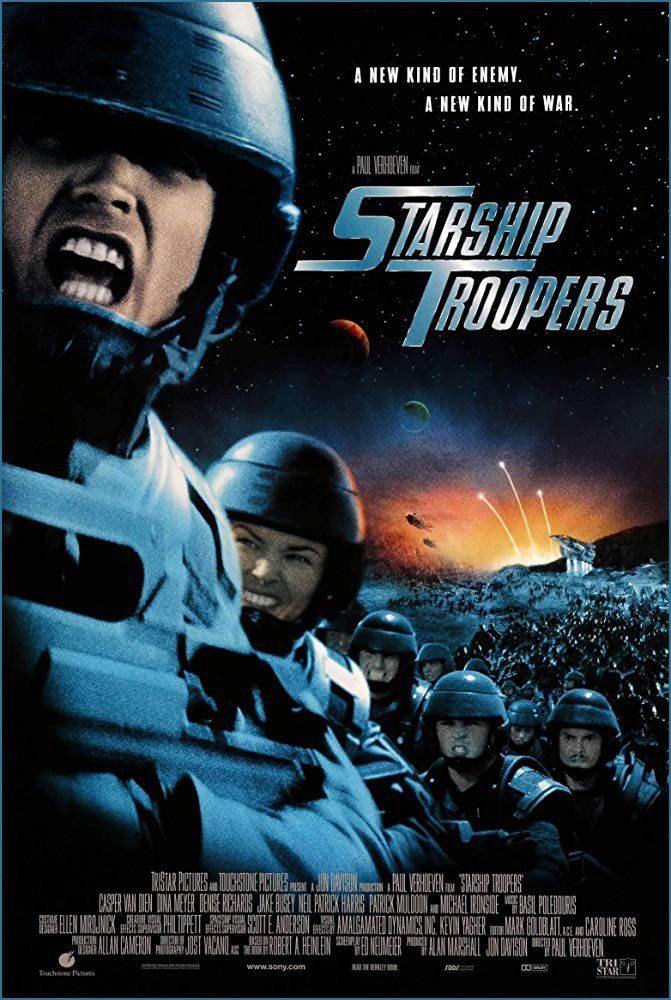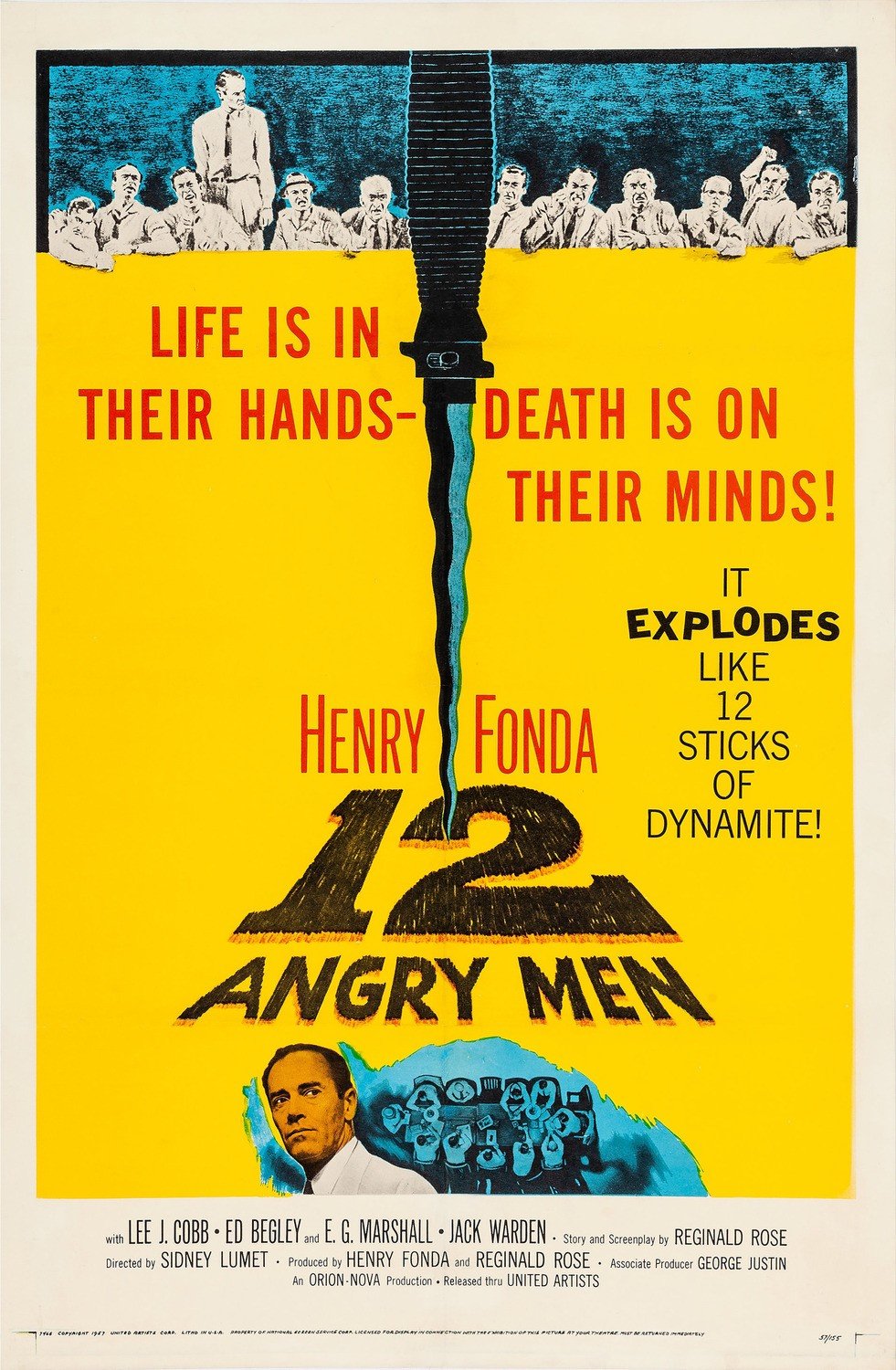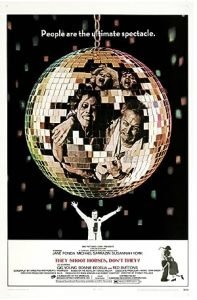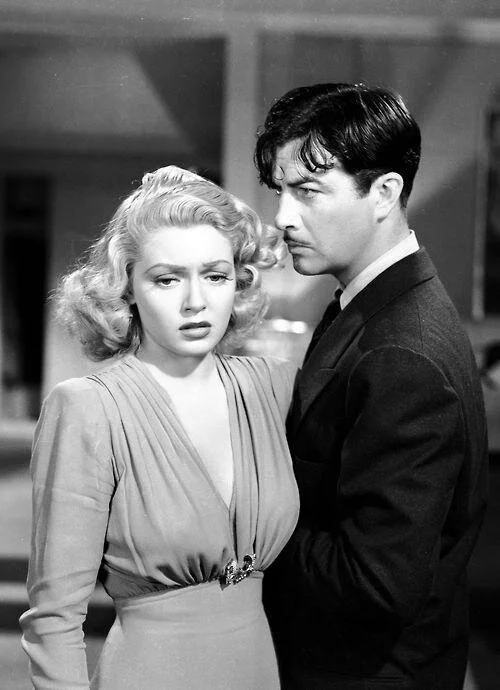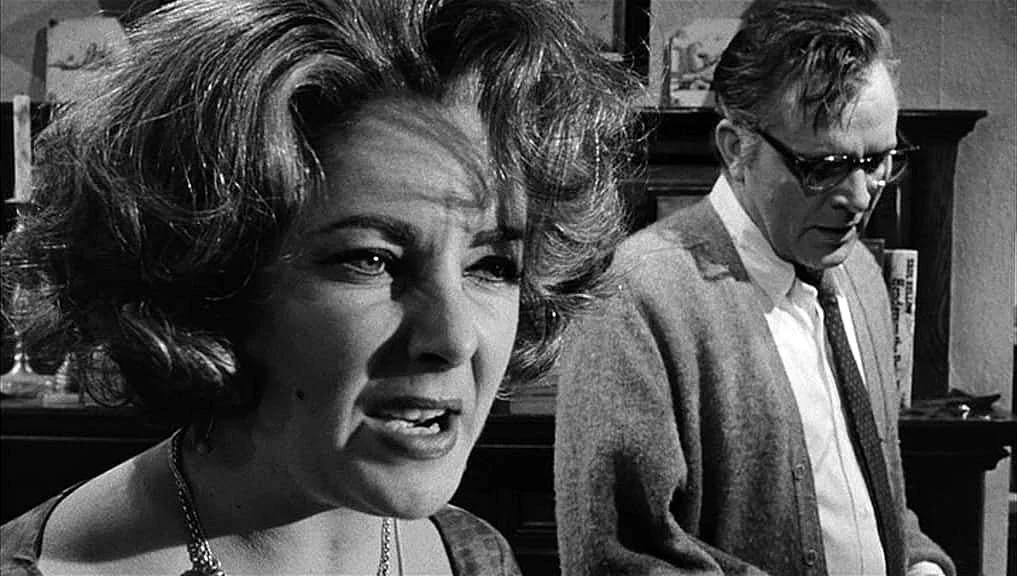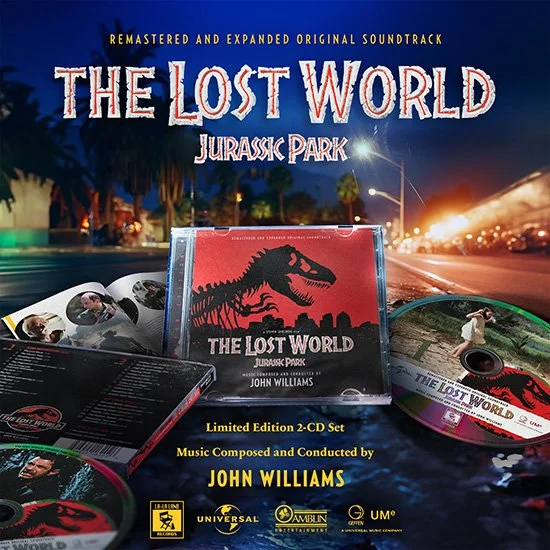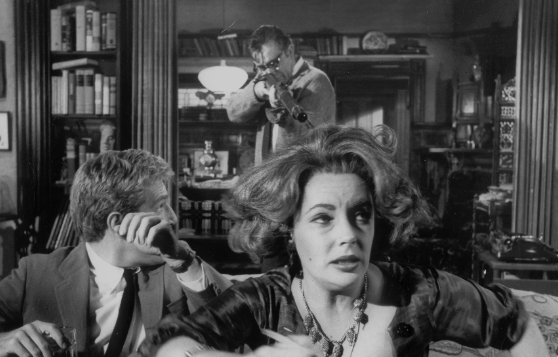"Now Listen to Me..."
Just some thoughts on this month’s happenings:
Classic film screenings from around the world this September include:
In London, United Kingdom The Prince Charles Cinema will present The Sacrifice (1986, a 35mm print) Saturday, September 2 and Tuesday, September 26, Ride Lonesome (1959, as part of their RANOWN WESTERNS: DIRECTED BY BUDD BOETTICHER series) Wednesday, September 6, 8 1/2 (1963, a 35mm print) Friday, September 8 and Thursday, September 14, Casablanca (1942, a 35mm print) Saturday, September 9, Comanche Station (1960, as part of their RANOWN WESTERNS: DIRECTED BY BUDD BOETTICHER series) Monday, September 11, Starship Troopers (1997, a 35mm print) Wednesday, September 13 and Saturday, September 23, Minority Report (2002, a 35mm print) Tuesday, September 19, 12 Angry Men (1957, a 35mm print) Sunday, September 24, and The Exorcist (1974, a 4k presentation) on Friday, September 29 and Saturday, September 30.
* Note: Some of the above showtimes may be matinees only.
Click on the film’s respective image for more information. To see September’s complete programming, click on The Prince Charles Cinema banner above.
In Vancouver, British Columbia The Cinematheque will conclude FILM NOIR 2023 with The Killing (1956) Saturday, September 2, and The Strange Love of Martha Ivers (1946) on Saturday, September 2 and Monday, September 4.
For more information about this series, click on the top image above. Further information on each of its two remaining films can be obtained by clicking on the respective image. For other films scheduled this month at The Cinematheque, click on the theatre banner.
In Los Feliz (part of greater Los Angeles) California, The American Cinematheque Los Feliz 3 Theatre will present Sorcerer (1977, as part of their series ‘There’s Good and Evil in Everyone: The Films of William Friedkin’) Sunday, September 3, The Boston Strangler (1968, as part of this film’s 55th Anniversary) Monday, September 4, and The Birds (1963, as part of this film’s 60th Anniversary) on Tuesday, September 5.
In Santa Monica (also part of greater Los Angeles) California, The American Cinematheque Aero Theatre will present Out of the Past (1947, a 35mm print) along with a book signing with author Kimberly Truhler for her new book Film Noir Style: The Killer 1940s followed by a 90 minute lecture by author Kimberly Truhler and the film screening at 3:30 pm only Sunday, September 10, Woman in the Dunes (1964, a 35mm print, as part of their series ‘It Came from Outside the U.S.’) Sunday, September 10, and a double bill of The Castle of Purity (1973, as part of their series ‘Arturo Ripstein: An American Cinematheque Retrospective’ and ‘The Latin American Canon of Cruelty’) and The Place Without Limits (1978, as part of their series ‘Arturo Ripstein: An American Cinematheque Retrospective’ and ‘The Latin American Canon of Cruelty’) along with a Q&A with filmmaker Arturo Ripstein on Thursday, September 14.
* Note: Some of the above showtimes may be matinees only.
For more information specifically on each of these programmes, click on the corresponding image. To see the entire month of September’s programming including other films showing at both the Aero Theatre in Santa Monica and The Los Feliz 3 Theatre in Los Feliz, click on the American Cinematheque banner.
In New York City, New York Film Forum is presenting Winter Kills (1979, a 35mm print) from September 3 - 7, Contempt aka Le mépris (1963, a new 4k restoration, in celebration of this film’s 60th Anniversary) from September 3 - 7, and A DEEPER LOOK Hollywood’s first 3-D Wave, 1953-1954 a series running from Monday, September 4 - Thursday, November 16 consisting of (so far) 12 seperate programs with still more films to be announced.
For more information on the films or series mentioned, click on the appropriate image above. For a complete calendar of all the films playing this month, click on the Film Forum banner.
In theatres across the U.S. Fathom Events is presenting They Live (1988, a 35th Anniversary Screening) Sunday, September 3 and Wednesday, September 6, and Rain Man (1988, a 35th Anniversary Screening) on Sunday September 17 and Wednesday, September 20.
Click on the film’s poster image for more information. To see this month’s entire schedule, click on The Fathom Events banner above.
In Denver, Colorado, The Colorado Symphony Orchestra, Christopher Dragon conducting will present Star Wars: A New Hope (1977) with live musical accompaniment featuring John Williams’ dazzling score on Saturday, September 9 and Sunday, September 10.
Click on the above image for more information.
In theatres across the U.S. Flashback Cinema is presenting The Terminator (1984) on Sunday, September 10 and Wednesday, September 13.
Click on the poster image for more information. To see the entire month’s programming, click on The Flashback Cinema banner above.
In Melbourne, Australia The Astor Theatre is presenting a double bill of Rollerball (1975) and They Shoot Horses, Don’t They? (1969) Wednesday, September 13, and a double bill of Point Blank (1967, a 35mm print) and A Scanner Darkly (2006, a 35mm print) on Sunday, September 24.
Click on the appropriate poster image for more information on each film’s screening. To see the rest of September’s schedule, click on The Astor Theatre banner above.
In Castelló, Spain Culturarts Generalitat IVAC – La Filmoteca at the Raval Theatre will be presenting The Story of Adele H aka L'histoire d'Adèle H. (1975, as part of their series ‘FRANCOIS TRUFFAUT. THE FILM LOVER II’) on Wednesday, September 13.
Click on the film’s image for more information on this screening. To discover more of September’s programming including other films playing in Castelló, Spain at the Raval Theatre and at the Paranimf of the Universitat Jaume I, in Valencia Spain at the Filmoteca d'estiu, and Alicante Spain at the Arniches Theatre, click on the banner image above.
In Los Angeles, California Secret Movie Club is presenting at the Secret Movie Club Theater a double bill of Rope (1948, a 35mm print) and The Birds (1963, a 35mm print) on Saturday, September 16.
For more information on this presentation, click on the appropriate movie image. To discover other screenings organised by this group, click on the above theatre image.
In Auckland, New Zealand Academy Cinemas is presenting a double bill of On Dangerous Ground (1951, as part of Academy's FROSTY FLICKS Film Series) and Nightfall (1956, as part of Academy's FROSTY FLICKS Film Series) Sunday, September 17, and On Her Majesty’s Secret Service (1969) on Saturday, September 23.
To obtain more information specifically on each of these programmes, click on the corresponding image. To see the entire month of September’s programming, click on the Academy banner above.
In Los Angeles, California The Beverly Cinema will present North by Northwest (1959, an IB Tech 35mm print) Thursday, September 21 and Friday, September 22, and a double bill of The Tall T (1957, a 35mm print) and Ride Lonesome (1959, a 35mm print) on Wednesday, September 27 and Thursday, September 28.
Click on the respective image for more information. To see the rest of September’s schedule, click on The Beverly Cinema banner above.
Film Noir Detroit All Access Pass
In Detroit, Michigan Noir City Detroit will take place at the Redford Theatre from September 22 - 24 featuring 4 Double Features Plus a Saturday, September 23 Q&A with Eddie Muller.
For information about An All Access Pass that entitles its bearer to all of these events and more, click on the above image.
For more information on the 4 double bill screenings including other films being presented this month at the Redford Theatre, click on the image below.
There are 25 recommended films to watch on Turner Classic Movies in the U.S. this month:
Despite its ridiculously hard to follow plot, this next recommendation's wildly entertaining detective yarn is worth waking up for.
Previously reviewed here, The Big Sleep (1946) will awaken Saturday, September 2 at 11 am PDT.
A most talented friend on Facebook, Leilani Roundtree, has graciously allowed me to post her own very special modernised trailer for The Big Sleep. This amazing work both spoofs contemporary coming attractions while paying homage to the early classic in a most delightful way. Enjoy!
Make way for the rapturous Stanley Donen directed musical Seven Brides for Seven Brothers (1954), reviewed here, Sunday, September 3 at 9 am PDT.
Few biopics are as inspirational as Michael Curtiz’ Jim Thorpe - All American (1951) a previous TCM recommendation here and one that can be appreciated again Wednesday, September 6 at (early morning) 1 am PDT.
An Edward G. Robinson starring film to see is Dark Hazard (1934): Hidden Gem #52. This has also been previously reviewed as a TCM recommendation here. He’ll race from the gate Wednesday, September 6 at 8 am PDT.
MGM contract player Robert Taylor appeared in a startling number of excellent films. Johnny Eager (1941), a previous recommendation here, is one of them. If you haven’t seen this exciting film noir with its irresistible characters (like the one pictured below played by Lana Turner) and situations, don’t miss the opportunity Thursday, September 7 at 4:30 am PDT.
One of Alfred Hitchcock’s more uncustomary, yet distinguished, offerings is 1953’s I Confess previously reviewed here, featuring a fervent, introspective performance from Montgomery Clift. This highly engrossing confessional can be heard (and seen) Sunday, September 10 at 9 am PDT.
Immediately following Alfred Hitchcock's I Confess is the same director’s masterpiece Vertigo (1958), loaded with multi-faceted insights and hidden rumination on human relationships providing viewers with much to ponder long after this tale of romantic obsession ends. This cinematic treasure was previously opened here and will unveil its visual and aural riches Sunday, September 10 at 10:45 am PDT.
“The mattress is soft and there're hangers in the closet and stationary with ‘Bates' Motel’ printed on it in case you want to make your friends back home envious.”
Still another Hitchcock artistic triumph was, at the time (including throughout its primary creator’s career), the most audacious cinematic assault ever perpetrated on the movie going public or the Motion Picture Production Code for that matter. 1960's Psycho was previously reviewed here. The terror will begin Sunday, September 10 at 3 pm PDT.
In 1967, British Director John Boorman nailed the American crime milieu with the precision of his film's title, Point Blank, a neo-noir masterpiece fortified with style and driven by purpose.
Lee Marvin's 'cold as a frozen corpse' Walker, is a machine-like man on a mission, appearing unstoppable as he charges through LAX possessed with unbridled vengeance. It's also quite ironic that despite Walker's hardened resolve, the considerable threat he poses, generous amount of punishment he dishes out, and the high body count he seems responsible for, doesn't directly kill anyone in the entire picture. "Was it a dream?" You be the judge when Point Blank (first acclaimed here) hits Tuesday September 12 at 8:30 pm PDT.
One of the most intelligent and illuminating documentaries ever produced is Robert Epstein's 1984 feature The Times of Harvey Milk previously reviewed here and making another rare showing on TCM Friday, September 15 at (early morning) 1:30 am PDT.
This will be a really bad day for anyone who encounters Them! (the giant mutant ants that is). The motion picture, however, is an exhilarating creature feature, previously reviewed here. Them! will march on TCM Monday, September 18 at 5 pm PDT.
Next is Baby Face (1933), the Pre-Code sensation starring Barbara Stanwyck, reviewed here, and making her bold appearance on Tuesday, September 19 at 2:15 pm PDT.
(From left) Theresa Harris, Barbara Stanwyck
This next hypnotic but terrifying entrancement from 1955 is a highly expressionistic fable that appears as if conveyed from a child's point of view. "Fairytale noir" is what Film Noir expert Eddie Muller calls it. Noted author Preston Neal Jones describes the film as “Mother Goose with goose bumps” and in my review the description reads: “… like a Grimm fairy tale only a whole lot grimmer.” Previously reviewed in Opening Up a Treasure: The Night of the Hunter, this extraordinary tale awaits your interpretation Tuesday, September 19 at 7 pm PDT.
Don't miss Nicholas Ray's character study In a Lonely Place (1950) with Humphrey Bogart perfectly cast as Dixon Steele whose unpredictable explosions of anger make him a prime suspect for the killing of a young ingénue. This highly probative film noir was previously recommended here and will be investigated Tuesday, September 19 at 11 pm PDT.
“I love this dirty town.”
New York City’s vernacular never smelled sweeter than it does in 1957’s Sweet Smell of Success. Any device designed to test acidity levels, applied to this film’s dialogue, would itself disintegrate after flicking the “on” switch. The film, reviewed here, will be shown on TCM (updated) Wednesday, September 20 (2023) at (early morning) 1 am PDT.
James Garner, Rod Taylor and Eva Marie Saint star in the intriguing “Mission Impossible” prototype espionage thriller 36 Hours (1964), previously reviewed here. The hour to watch will occur Wednesday, September 20 at 3 pm PDT.
Immediately following 36 Hours is a film that in comparison, exemplifies the diversity of cinema: Luchino Visconti’s sublime and contemplative Death in Venice (1971), briefly reviewed here and showing on TCM Wednesday, September 20 at 5 pm PDT.
TCM is showing Guess Who’s Coming to Dinner (1967) on Thursday, September 21 at 7:15 pm PDT. This is a film I’ve been rather dismissive of in my brief review which can be read here. On the plus side, all of the able-bodied cast members offer solid performances.
Also on TCM’s agenda is the Neo-noir Bullitt (1968), one of Steve McQueen’s most iconic characterisations. Reviewed here, Bullitt will speed its way onto TCM Thursday, September 21 at 11:45 pm PDT.
The multi-talented Gordon Parks made his directorial debut at age 57 with 1969's The Learning Tree based on his semi-autobiographical novel of the same name. This touching coming of age story was previously lauded, along with its creator Parks, in an article entitled: Exploring the Artefacts #5: The Alchemist. Included are some clips of Parks' music compositions for The Learning Tree and Shaft's Big Score. The Learning Tree can be studied Friday, September 22 at 7 pm PDT.
Many of the films first listed as "Hidden Gems" are not so hidden anymore thanks to those companies releasing them on DVD and Blu-ray in addition to their regular showings on TCM. One of these is Hidden Gem #59, The Hill (1965), an intense dramatic achievement. I've previously reviewed this film here. The Hill can be marvelled at on TCM Saturday, September 23 at 2:45 pm PDT.
Also in this month’s lineup is Todd Browning's shockingly bold and terrifying 1932 film, Freaks, previously reviewed here. They will appear on TCM Wednesday, September 27 at 1:45 pm PDT.
One of the first films to deal with homosexuality in a mature and sophisticated manner was the 1961 British suspense film Victim, reviewed here and showing on TCM Wednesday, September 27 at 9 pm PDT.
In 1966, one of the more challenging films to face off against the Production Code (mentioned in Exploring the Artefacts #3: Code Breakers) was that year’s Who’s Afraid of Virginia Woolf? remarkably delivering all of the guttural force of its theatrical origin while creating a more intimate, and cinema appropriate, dynamic all its own. Let the “games” begin (updated) Sunday, November 9 (2025) at 5 pm PST.
Who’s Afraid of Virginia Woolf? is also September’s Blu-ray recommendation, reviewed at the conclusion of this column.
TCM's current monthly schedule can be confirmed by clicking on any of the above TCM related images. To confirm the correct Pacific Standard (West Coast) showtime information, subtract 3 hours from the Eastern Standard (East Coast) showtime listed on TCM’s schedule.
Dark Passage (1947) is a wildly engrossing film noir that combines the best of romance with the best of noir in the best location for both: San Francisco. Previously endorsed as a Blu-Ray release here, Bogart will make his dark (rite of) passage on Saturday, September 30 at 1:15 pm PDT.
TCM's current monthly schedule can be confirmed by clicking on any of the above TCM related images. For those who live in parts of the U.S. other than the western region, the time zone can be adjusted in the upper right-hand corner of TCM's programme.
This month’s Happy Birthday shout-out goes to the gifted Scottish actor David McCallum who turns 90 on September 19th.
The talented thespian has lent his stalwart presence to an impressive host of recognisable classic films including Hell Drivers (1957), Robbery Under Arms (1957), Violent Playground (1958), A Night to Remember (1958), Billy Budd (1962), Freud (1962), The Great Escape (1963), The Greatest Story Ever Told (1965), The Spy with My Face (1965, reprising his famous TV role as Illya Kuryakin in The Man from U.N.C.L.E. series), and Mosquito Squadron (1969). He’s also lent us his memorable characterisations to various TV series including The Outer Limits (1963 - 1964), Profiles in Courage (1964, as John Adams), The Man from U.N.C.L.E. (1964 - 1968, in 105 episodes), JAG (2003), and most recently NCIS: Naval Criminal Investigative Service (2003 - 2023, as Donald Mallard in a staggering 457 episodes).
The Soundtrack recommendation for the month is John Williams' rugged and sensational score to the first sequel to 1993's Jurrasic Park, The Lost World: Jurassic Park (1997).
“Oh, yeah. Oooh, ahhh, that's how it always starts. Then later there's running and um, screaming.“ (Jeff Goldblum as Dr. Ian Malcolm summarising all of what’s significant about this dinosaur disaster rehash).
This particular sequel lacks the awe of seeing the dinosaurs for the first time but you wouldn’t know it going by that same familiar look of astonishment on the faces of its characters. Also carried over from the first instalment are director Steven Spielberg’s prominently divided humans and creatures by two distinct categories: those with good intentions and those with bad objectives. Once the filmmakers establish each participant’s shallow identity and goal, it’s simply a matter of setting up the many perilous situations whose outcomes hardly matter given the stock populace involved. So little distinguishes one member of each group from another in the same category (dinosaurs versus people) there’s nothing to ponder except perhaps how and when the inevitable demise of the “bad guys” will occur. There is some light comic relief along the way. The special effects, stunts and other technical support are all top notch.
Once again, it is left to composer John Williams to breathe some creative sophistication into this otherwise predictably ponderous affair. Aside from porting over his stately theme from the first Jurassic Park, he’s roared into action with new material that delivers, and then some, the desperately needed excitement, wonder, sinister undercurrents and magisterial might far beyond (given the rest of the dramatic elements) what this film deserves or even our expectations from such an amazingly talented composer. Enormous credit for innovative inspiration goes to Williams’ orchestrators John Neufeld and Conrad Pope. Viewers should definitely stick around for the end credits just to hear this trio’s compositional pièce de résistance as it thunderously builds to a most satisfying conclusion. For those listening to the C.D., it’s Track 11 on Disc 2.
La-La Land Records, Universal Pictures and Amblin Entertainment, Universal Music Group and Geffen Records are presenting this limited (only 5,000 units produced) 2-CD remastered and expanded presentation currently available from La-La Land Records by clicking on the accompanying image.
Who’s Afraid of Virginia Woolf? is September’s former TCM, and current Blu-ray, recommendation.
(From left) Elizabeth Taylor, Richard Burton, George Segal, Sandy Dennis
In 1966, one of the more challenging films to face off against the Production Code (mentioned in Exploring the Artefacts #3: Code Breakers) was Who’s Afraid of Virginia Woolf? More than just the vitriolic words themselves, it must have been the eviscerating intent behind them that really rankled the Motion Picture Association of America.
(From left) George Segal, Richard Burton, Elizabeth Taylor
The film version of Edward Albee’s play remarkably retains all of the guttural force of its theatrical origin while creating a more intimate, and cinema appropriate, dynamic all its own. And it’s in depicting the quieter moments where director Mike Nichols’ participation most impresses: those character revealing thought processes and underlying feelings that the camera, acting as the director’s “eyes,” is most able to detect.
George Segal, Sandy Dennis
Of course it helps when the parts are so perfectly cast: Richard Burton plays George, an associate professor of history, and Elizabeth Taylor his wife Martha, * the president’s daughter at the college where George teaches. After returning home late one night from a faculty party, Martha mentions that she has invited a young couple over for drinks. The guests are Nick, a biology professor played by George Segal, and his wife Honey portrayed by Sandy Dennis. As the liquor continues to pour like a freshly sprung spring, George and Martha’s inhibitions loosen considerably. This especially applies to their formerly repressed resentment toward one another. The verbal assaults increasingly intensify in what George identifies as a series of games such as the first one played: “Humiliate the host.” It’s as if the unleashing of calculated hostility and their subsequent retaliations the couple dish out (as well as being directed toward anyone else who happens by), is not only a reoccurring event but volleys to be admired by both George and Martha for their oppositional effectiveness.
This marriage’s demoralising, liquor-fuelled battles form the narrative’s dramatic centrepiece. They confront the audience by suggesting that our ability to relate means we are capable of doing the same, i.e. redirect the pain felt regarding one’s own lack of self-worth to others, especially those we feel closest to. Who’s Afraid of Virginia Woolf? is an audacious exploration of a couple whose desperate, keenly felt need to purge their individual self-loathing has found the perfect kindred spirit in supporting this wicked mutual desire to destroy one another. Their verbal assaults rapidly transverse along a direct line of personal failures especially as they relate to the American dream of family and professional success… societal goals generally held in high esteem at the time the play was produced. It’s in charting George and Martha’s non-fulfilment in these areas (as well as observing their guests’ similarly failed aspirations), that the playwright, perhaps inadvertently or with purposeful ironic intent, props up the status quo which none of the characters appear to question. Since these goals remain conceptually prized but underachieved, some may find this lack of redress or overview regarding traditional American values to be the source material’s one possible oversight or weakness.
Burton’s “George” makes for an interesting comparison to Broadway’s earlier, more intellectually-tempered reading by Arthur Hill. While I prefer the added humour in Hill’s retorts (“Rubbing alcohol for you Martha?”) Burton’s subdued interpretation is more in keeping with cinema’s ability to portray internalised emotions resulting in one of the thespian’s most accomplished renditions. I’ve previously written about Elizabeth Taylor’s performance in Top Ten Treasured Performances Part 2. She had to reach beyond the stars to get anywhere near the brute force conveyed by Uta Hagen’s legendary stage characterisation, and damn if Liz doesn’t rocket into the acting stratosphere by seamlessly transitioning from loud and vulgar assertiveness (e.g. the way she stumbles around drunk as a sloshed skunk shrieking almost unintelligibly “Heey… where the hell is everybody?!!”) to hurtful resigned reconciliation is gutsy, persuasive and heartfelt.
George Segal as Nick is also at the top of his game, perfectly suited for his character’s cocky but inquisitive, opportunistic but sympathetic complexity. Same goes for Sandy Dennis as Nick’s wife Honey who’s forced to bear the brunt of her husband’s personal divulgences to George when the latter subsequently uses that information as ammunition in another game he calls “Get the guests.”
All of the verbal viciousness, including the occasional sudden outburst of physical aggression, as well as the story’s more intimate moments, are appreciably enhanced by Haskell Wexler’s fluid and sometimes dizzyingly off-kilter cinematography. The visual acuity is perfectly matched to the kinetic editing of Sam O’Steen. Alex North also makes a substantial contribution to the film’s ambience bridging its contrasting moods, and is especially effective in underlying the pathos felt during the film’s closing moments.
When dawn arrives and the battles are over, the guests who have been “gotten” are gone. The illusion that was agreed upon and manufactured by George and Martha has been destroyed and so, in a manner of speaking, have they. The previously mentioned “buried beneath the surface” care for one another this cinematic treatment has successfully unearthed is all that’s left between our weary couple. The light of day has overtaken the darkness but the latter will, of course, return. The question is, will the inevitable darkness re-inhabit our couple as well? These are the kind of issues that make stories like this one so thought provoking, pertinent and memorable.
* Burton and Taylor most assuredly benefitted from being embroiled in a torrid romantic relationship of their own.
Click on the video image below for more information on this superb Region Free release from Warner Archive and ordering from Amazon.com
A.G.





